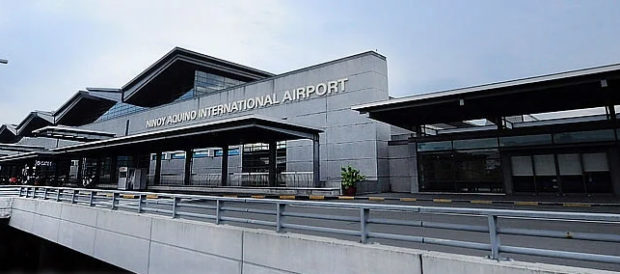
Ninoy Aquino International Airport (NAIA). Image from MIAA
MANILA, Philippines – The air traffic control system’s crippling glitch on New Year’s Day, which resulted in hundreds of domestic and international flights being disrupted, was either a malicious act of sabotage or gross incompetence, Senator JV Ejercito said.
In a statement on Monday, Ejercito said an investigation should be done to ensure that “this unfortunate incident doesn’t happen again.”
“We have yet to find out the facts. CAAP is the agency in charge, so they have a lot of explaining to do,” he said, referring to the Civil Aviation Authority of the Philippines.
Ejercito pointed out that it was “baffling” that the Air Traffic Management System (ATMS) did not have a backup structure to mitigate the effects of its recent malfunction.
“Having a totally non-functioning radar system is not only dangerous for air travel but is a concern of national security,” he added.
Ejercito noted that the incident highlights the “need to take back vital utilities such as the National Grid Corporation of the Philippines, which could cripple the whole country’s economy and is also a national security concern.”
Senator Grace Poe earlier said the Senate would conduct an inquiry on the matter once normal flight operations are restored at the Ninoy Aquino International Airport (Naia).
READ: Senate to conduct inquiry on air traffic control system glitch
Senators Nancy Binay and Sherwin Gatchalian have likewise sounded the alarm on the system malfunction on Sunday, which affected at least 56,000 passengers scheduled to arrive at or depart from Naia and other airports in the country.
The technical problems encountered by Air Traffic Management Center, which oversees all flights within the Philippine airspace, was caused by a failure in the uninterruptible power supply system used by the CAAP, according to Transport Secretary Jaime Bautista.
READ: UPS failure caused glitch at CAAP’s Air Traffic Management Center, says DOTr
CAAP’s Aerodrome and Air Navigation Safety Oversight Office is also conducting its own investigation on the incident in a bid to pin down the primary cause of the power supply problem.
In a separate statement, CAAP said it “recognizes that the system is already behind when it was first used in 2019 and has made recommendations to the President on improving the country’s ATMS.”